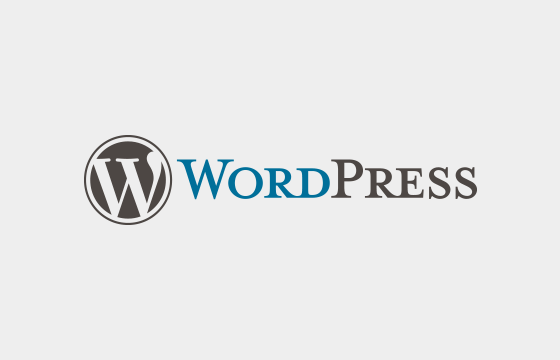WordPress Solution
Wordpress is a content management system (CMS) that was released as a fork of b2/cafelog, coded by the Frenchman Michel Valdrighi. Today, 30% of websites worldwide use Wordpress. Yes, just that!
The very first version of WordPress, version 0.7, was made available to the public in 2003. Shortly followed by its V1 in 2004. Since then, the CMS has never stopped improving! The V2 at the end of 2005, then the V3 in the summer of 2010 to finally reach its V4 in September 2014. Today, WordPress is running more than 30% of all websites worldwide. The number is still increasing, making it the most widely used CMS in the world.
Definitely Open Source, WordPress is written in PHP, coming with a MySQL database management system. The main purpose of the solution is to ease the management of content by providing a wide range of CMS features. Moreover, WordPress contains custom designs, themes, and modules that enable allow you to built full and scalable websites.
WordPress, for who?

A versatile CMS
This CMS is for “everyone”. Created at the beginning as a “light” interface to create a blog, it builds itself year after year a solid reputation and attracts nowadays major brands as well as the biggest media and institutions willing to set up a complete and flexible web publishing system (Vogue, New York University, Pulse, Angry Birds, Walt Disney, …).
WordPress solution covers a wide range of users. Whether you are a freelance blogger, a business, marketing brand or media, WordPress can adapt to your needs. In other words, WordPress can meet a “basic” use, as well as cover much more advanced requirements, especially if it is coupled to modules or custom tools.
Why WordPress?
In terms of content management and flexibility of use, WordPress can showcase many qualities. Due to an intuitive design, the solution is one of the most accessible CMS. Moreover, WordPress provides all necessary functionalities to manage a website, including text content, external media, or files. The WYSIWYG editor allows users to edit the content on a clearly designed interface, without any particular knowledge of the programming languages and thus, allowing total freedom for the user. Its mobile application even enables administration of the website from a smartphone.
The greatest strength of WordPress certainly lies in its tens of thousands extensions. These extensions, also called plug-ins or modules, extend the functional scope of WordPress. The majority of the extensions are free and directly downloadable from the back office or from WordPress.org. Another great benefit is its large, active community, that offers global knowledge sharing and various services such as installation and customization of themes, custom developments, installation and configuration of modules, or integration of graphics.
For its user-friendly interface and management (suitable even for novices), for its ease of set-up and configuration, as well the thousand of usefull extensions to pimp its features (SEO, Marketing, …) and its hundred of stunning themes, WordPress brings great benefits! It is important to mention that the regular updates, along with security checks, and the natural ‘SEO ready’ state, contribute a lot to the reputation of WordPress.
Dashboard
The custom panel presents features and useful information about the websites (recently published, module updates, comments, statistics).
Content Creation
The WYSIWYG editor enables autonomous management and content editing. The interface is fully customizable and its features are expandable via additional extensions.
Post Management
Management of the article status to organise a publication schedule (draft, delayed publication, published, visibility dependent on user).
Additional Modules
Additional custom features thanks to an extensive range of third-party modules (newsletter management, forms, SEO extension for the text editor, sliders, cookies, Google maps, API).
Page Management
Admin interfaces for articles and web pages (filters, categories, editing, publication, removal).
Media Management
All photos, videos, documents, and audio files on the website are listed in the media library.
User Management
Complete management of roles and permissions, from the administrator, subscriber, moderator, contributor, and author to the publisher.
Multi-site & Language Management
WordPress enables the creation of multiple websites with different languages, to manage from the same back office.

Why Sutu’?
You got it! At Sutu’, we love Open-source software. We always aim to offer THE best solution that meets your needs. WordPress is now often an answer to your question moreover is easy to handle.
When we develop a WordPress website (or on other solutions), we are committed to ensuring that our clients have the maximum freedom in the management of their sites. Thus, we provide training sessions that focus mainly on practice rather than theory in order to ease our clients autonomy in managing their sites and contents. But keep in mind, it’s good to build a website, but to have a powerful tools that converts in your hands is always better!